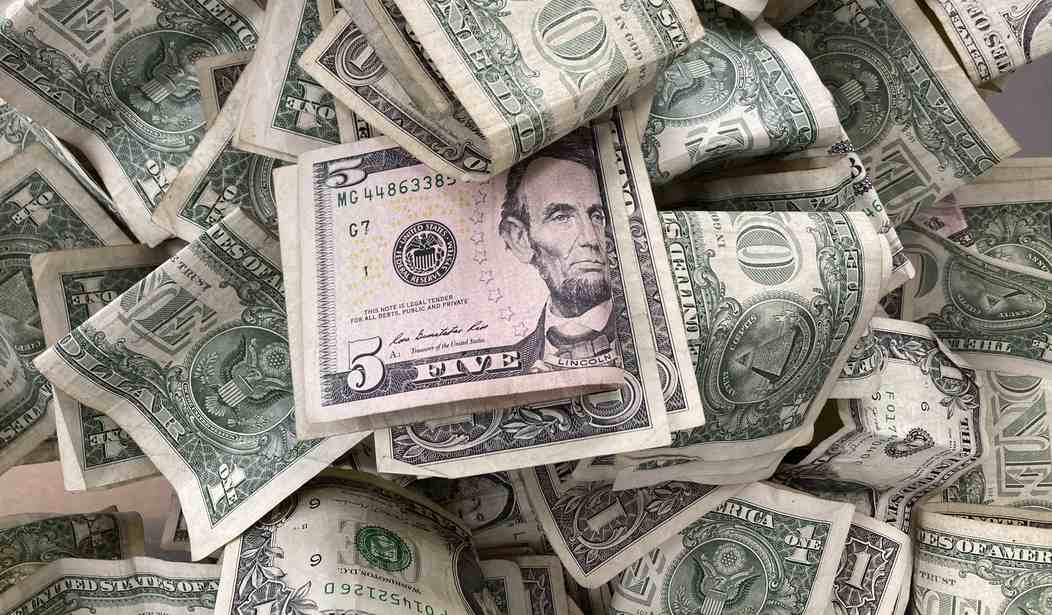When the history of this American era is written, the top headline will not be about election controversies or critical race theory or even COVID-19. This will be known most of all as the era when America sold out its future generations. This week, America's national debt surpassed $30 trillion for the first time, a full $7 trillion increase from just two years ago.
How did this happen, and who's to blame? President Bill Clinton was no deficit hawk, but with a Republican Congress keeping him largely in line and with the dot-com boom providing record government revenues, Clinton gets a pass. His eight years added to the deficit, but not by much by today's standards. As measured against the size of the U.S. economy, the debt ratio actually went down under Clinton.
The real debt explosion happened on the watch of the four presidents in the 22 years since Clinton, two Republicans and two Democrats. There were plenty of emergencies during these 22 years to justify huge and often wasteful spending binges (the war in the Middle East, Hurricane Katrina, the financial crisis, COVID-19). Regardless, the result of this 22-year period was an increase in the national debt from just under $6 trillion (55% the size of the U.S. economy at the time) at the start of the Bush years to $30 trillion (130% the size of the U.S. economy) today. And this deficit spending binge shows no signs of receding. In 2021 alone, the US added nearly $3 trillion to its national debt -- about 12.5% of the entire American economy.
Dwarfing the role of the often-wasteful spending programs of the last four presidents, the bulk of America's debt problem is driven by Social Security and Medicare. These programs, offering retirement and health care entitlements for all Americans, accounted for a full 25% of all federal spending in 2021. As more baby boomers hit retirement and less Americans work, without reforms, the debt impact of these programs is set to explode.
Recommended
Why does all this matter? In 2021, the federal government spent $300 billion on debt interest alone. That is $2,400 for every household in America. With the inflation America is seeing under President Joe Biden's watch, interest rates are going up. For every 1% increase in interest rates, at today's debt levels, the federal government will pay another $225 billion in annual interest. With just a 2% rise in interest rates, the federal government will pay more each year on debt interest that it does on national defense.
It's easy to blame politicians for America's debt-ridden predicament. They deserve a lot of blame -- maybe none more than Republicans who campaigned as the party of limited government and spending restraint while governing as just the opposite.
The deeper truth is that we are all to blame. The facts are clear. The facts have been clear for decades now, but there has been no national will to take on the debt problem. Politicians who tried to broach the topic were punished, George W. Bush's attempt at Social Security reform being the most obvious example.
Americans have enjoyed the benefits of relatively low taxes along with lavish government spending. Rather than sound the alarm, America's elites on Wall Street and in big business, those who claim to know better, have led the pack for increased government spending. It has helped their short-term bottom lines. The media is also to blame. When Biden uses budget gimmicks to pretend his so-called Build Back Better program won't add to the debt, the media largely lets it go.
America's looming fiscal catastrophe used to be decades away. The boom in spending in recent years has accelerated the timeline. The net effect will be a decline in American national power. The beneficiaries will be America's adversaries, particularly China. How can America effectively check increased Chinese aggression in their region and beyond if the debt starts limiting spending on national defense? This is the world we are leaving for our kids.
Is there any solution today? The first step is to stop the bleeding. Biden's new debt-financed entitlement spending proposals are not responsible at today's debt levels. Luckily, it seems Sen. Joe Manchin understands this.
The next step, which we are nowhere close to, is to acknowledge the problem and begin discussing solutions. America needs a national leader strong enough to step forward and say enough is enough. It is flat-out immoral to burden future generations of Americans the way we are doing.
Will anyone listen to real talk like this? There's some evidence there's a chance. Huge numbers of Americans feel like we are a country in decline. They are longing for change. There's a chance that they could reward someone strong enough to park all the phony political speak and tell the truth.
There is also a real-world example. Back in 1992, when the national debt was only $4 trillion (60% the size of the U.S. economy then), billionaire Ross Perot mounted the most successful third-party Presidential candidacy in modern history, largely on a platform of American renewal and real talk about the debt problems. Perot got nearly 20% of the popular vote even after pausing his campaign until only a month before Election Day. Perot was ahead of his time. He had identified the problems, but back then, America had decades to fix them. Today, a strong case can be made that unless reforms are put in place soon, the results could be catastrophic. Is this likely to work? Probably not, but given the national mood and the near breakdown in American politics, maybe. More importantly, there is no better option on the table. Given the repercussions of just staying on the course to disaster, it seems worth a shot.

























Join the conversation as a VIP Member